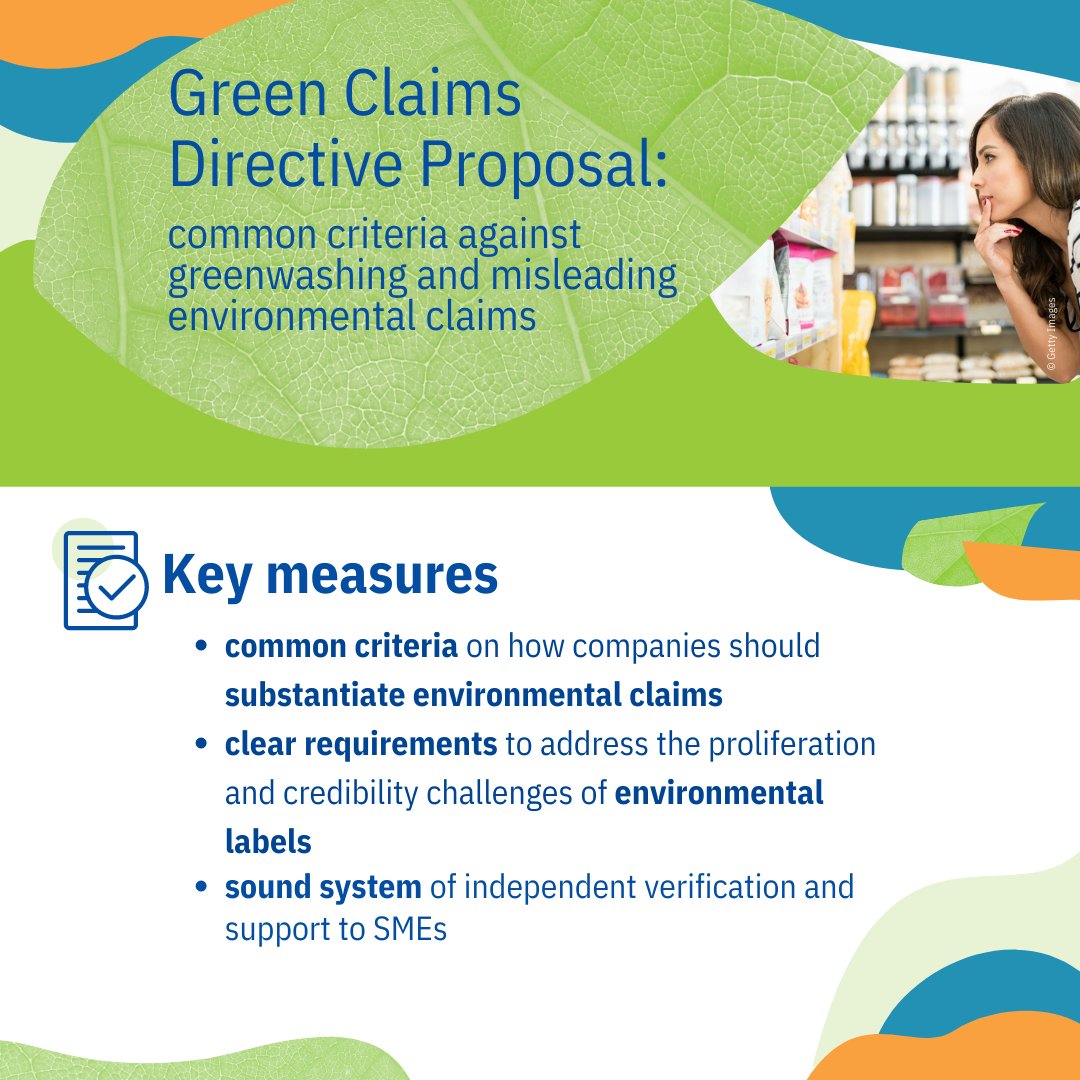With the third package of initiatives proposed by the EU under the Green Deal, the proposal for a “Green Claims Directive” has been adopted.
The main aim is to promote sustainable consumption and prevent companies from making misleading claims about the environmental qualities of their products and services, so in a nutshell to avoid greenwashing through product labelling and claims.

The directive sets detailed guidelines for companies on how to market their environmental impacts and performance, ensuring transparency and eliminating unsubstantiated claims. The need for this directive arises from a Commission study from 2020 revealing that 53.3% of examined environmental claims in the EU give vague, misleading or unfounded information and 40% of claims are unsubstantiated.
To ensure compliance, the directive requires traders to substantiate explicit environmental claims by conducting assessments based on scientific evidence, demonstrated environmental impacts, and adherence to legal requirements. The directive also mandates clear communication of claims, including environmental aspects, standards, underlying studies, and certification details. Additionally, a conformity certificate provided by third-party conformity assessment bodies will be required to use environmental claims.
The directive also addresses the issue of sustainability labelling schemes, aiming to establish transparent and accessible requirements for participation. No new national or regional environmental labelling schemes can be established, except for existing schemes that meet the directive’s standards like Emas and Ecolabel. Being GS1 a global organisation, it’s important to note that environmental labelling schemes from non-EU countries must obtain pre-market approval from the EU Commission and provide added value compared to existing schemes.
The directive specifies requirements for verifiers too, emphasizing their independence, integrity, professional competence, and confidentiality of information. Microenterprises are the only category exempted from compulsory verification requirements.
In summary, the EU’s Green Claims Directive proposal aims to eliminate misleading environmental claims, provide trustworthy information to consumers, promote the repairability of goods, and establish transparent and reliable sustainability labelling schemes. By doing so, the EU seeks to advance its circular economy objectives and create a level playing field for businesses while fostering consumer trust and sustainable consumption practices.
